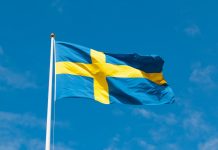 Unibet operator Kindred Group has revealed a year-on-year decline in profit for 2019, primarily due to higher costs associated with its expansion efforts in the US.
Unibet operator Kindred Group has revealed a year-on-year decline in profit for 2019, primarily due to higher costs associated with its expansion efforts in the US.Kindred’s revenue climbed 0.6% year-on-year to £912.8m (€1.09bn/$1.19bn). Western Europe contributed the majority of this revenue, at £555.5m, up 7.6% from 2018. Revenue from the Nordic countries came to £258.6m, a 15.7% decline.
Central, eastern and southern Europe brought in £79.0m in revenue, up 15.8%, while the rest of the world contributed £19.7m, up 18.7%.
Sports betting brought in just under half of Kindred’s revenue at £435.5m, down less than 0.1%. It was most popular in western Europe, bringing in £299.9m. In the Nordic region, it brought in £86.7m after a 23% decline and in central, southern and eastern Europe it came to £36.9m. Sports betting brought in £12.0m in the rest of the world, up 35% year-on-year.
Henrik Tjärnström, chief executive of Kindred Group, said factors such as Sweden’s tightly regulated market affected the group’s ability to bring in revenue throughout 2019.
“Some of the factors that impacted the fourth quarter of 2019 were the same as we reported in previous quarters, such as the Swedish regulation and increasing restrictions in the Dutch market,” Tjärnström said. “These and other headwinds are a normal part of our business that we address, adjust to and, over time, use as a competitive advantage.”
This £435.5m in sports betting revenue came on £5.18bn in total stakes. The total revenue from in-play betting remained static at £250.5m, while revenue from pre-game bets rose 0.8% to £263.9m. However, an increase in free bets meant that overall sports betting revenue declined slightly.
Unibet’s margin on sports bets came to 8.4%, down from 8.6% in 2018.
For casino and other games, revenue came to £255.6m in Western Europe, £171.9m in the Nordics, £42.1m in central, eastern and southern Europe and £7.7m in the rest of the world.
The operator paid £404.2m in costs of sales, up 13.8% year-on-year. The majority of this came from betting duties, which rose 28.7% to £204.3m. Marketing costs paid to revenue share affiliates declined 2.4% to £48.8m while other costs of sales rose 3.0% to £151.1m.
Tjärnström noted that the higher costs despite stable revenue was largely due to the operator’s expansion into the US, which should start to generate more revenue in the future.
“We also had the first full quarter of trading in the locally regulated US states of New Jersey and Pennsylvania,” Tjärnström said. It was expected that the first months of trading in the US would be loss-making which is completely in line with Kindred’s experience of launches into other new markets.
“This is logical as revenues grow from zero in response to our marketing investments, which includes initial marketing production costs ($2m) to go live that will be used longer term.”
This resulted in a gross profit of £508.6m, down 7.9%.
Unibet’s administrative costs increased by 15.8% to £219.0m. The largest part of this expenses was salaries, which rose 14.4% to £96.1m. Other operating expenses declined slightly to £73.6m while depreciation costs rose to £25.0m, of which £14.9m was deprecation of properly, plant and equipment and £10.1m for right-of-use assets. Amortisation costs increased by 36.5% to £24.3m.
Marketing costs excluding revenue share payments increased by 11.6% to £210.9m. This resultd in underlying profit before items affecting comparability falling 55.8% to £78.7m.
After management costs relating to acquisitions of £200,000, personnel restructuring costs of £1.7m, amortisation costs of intangible assets of £7.9m and a £2.0m gain from currency exchange, Kindred’s profit from operations came to £70.9m, down 55.7%.
After a £7.0m loss from financial costs and a £2.9m gain from currency exchange rates on loans, Kindred’s pre-tax profit came to £67.1m, down 55.2%. Kindred paid £10.5m in tax in 2019, leading to an overall profit of £56.6m, down 57.0%.
For the fourth quarter of 2019, revenue declined 5.6% to £236.2m. This figure came from 1,603,903 active customers, with £110.7m from sports betting and £112.3m.
After a cost of sales of £106.2m, Kindred’s gross profit came to £130.0m, down 17.5%. Kindred’s administrative expenses came to £56.9m, leaving underlying profit of £17.8m, down 64.0%.
Kindred’s operating profit for the quarter came to £13.3m, down 70.4%. After financial income and expenses, pre-tax profit remained at £13.3m. The operator paid £2.4m in tax in the quarter for an overall profit of £10.9m, down 72.3%.
Tjärnström said that so far in 2020, Kindred has appeared far more successful than in 2019.
“Subject to change during the remainder of the quarter, but as an initial indication, the daily average gross winnings revenue for the period 1 January to 9 February 2020 in GBP was 5% higher (10% in constant currency) than for the same period last year. In the US, gross winnings revenues grew by 90% in January 2020 compared to December 2019,” Tjärnström said.
Today (12 February), Kindred also agreed a deal with Caesars Entertainment to roll out its sports betting and online gaming services in Iowa and Indiana.
Kindred, which will also be required to secure relevant licences in both states, will partner with Caesars’ Horseshoe Hammond Property in Indiana and the Harrah’s Council Bluffs property in Iowa.












